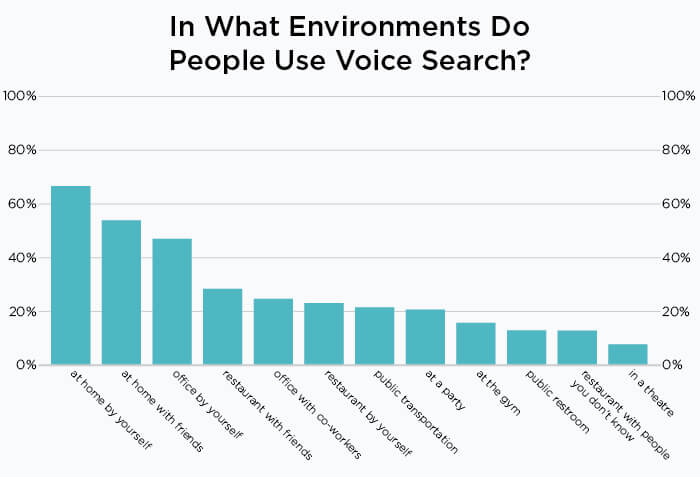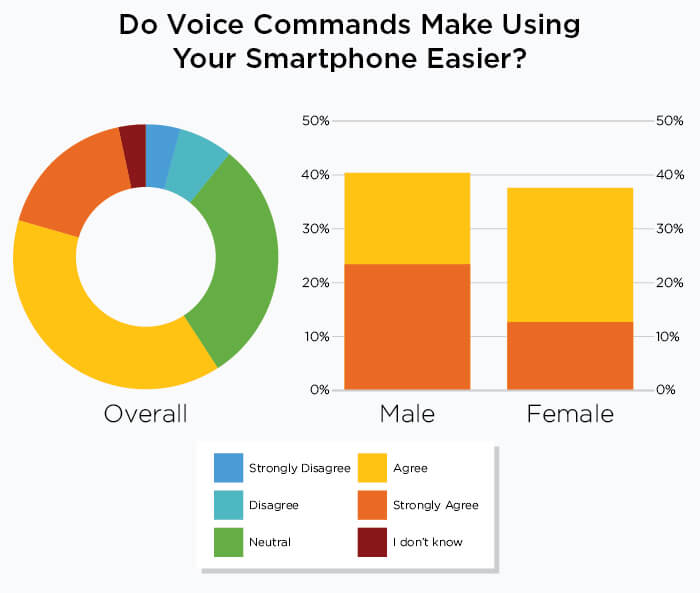Survey: 60 percent of voice users want more answers and fewer search results
Making calls, searching, texting and map lookups were the most common use cases for voice.
Voice search and use of voice commands on mobile devices is on the rise. However, there’s still some embarrassment or reluctance to use it, according to a new survey of more than 900 US smartphone owners from Stone Temple Consulting.
The survey found that people were more likely to use voice when they were alone at home or work. They were much less likely to talk to their devices in public.
Men, younger (and older) users and higher income groups were somewhat more inclined to use voice; however, the differences by category were generally not significant. The exceptions were that men and higher income earners appeared somewhat less inhibited about using voice in public situations.
Ironically, those same high income earners “are more likely to get annoyed by people using voice commands with their phone in public,” although they themselves are more likely to do it as well.
Making a call, searching, texting and map lookups were top use cases. Driving, “hands full” and “hands dirty” were the top contexts for voice, with roughly 60 percent citing these as dominant scenarios. However, the vast majority (80 percent) still preferred to text by hand (this may go to accuracy).
The top three rationales behind voice usage were:
- It’s fast.
- The answer is read back to me.
- I don’t have to type.
About 40 percent of both men and women said that voice made using their smartphones easier. Men were more likely than women to strongly agree. This answer and other data in the survey reflect a mostly positive experience with voice.
Perhaps the most interesting data in the survey findings pointed to the transformation of the search experience with virtual assistants and voice on smartphones. Users wanted more direct answers and fewer conventional search results with their corresponding need to go to third-party websites.
Respondents said they also wanted “more integration with other applications.” That’s a strange response, given that on both the iPhone and Android devices, speech is integrated with third-party apps.
We should see these responses as further indicators of satisfaction with virtual assistants and voice. I wish there were additional data unpacking this response. It’s the one with the most dramatic implications for the search user experience, for marketers and for Google.
Contributing authors are invited to create content for Search Engine Land and are chosen for their expertise and contribution to the search community. Our contributors work under the oversight of the editorial staff and contributions are checked for quality and relevance to our readers. The opinions they express are their own.
Related stories
New on Search Engine Land




